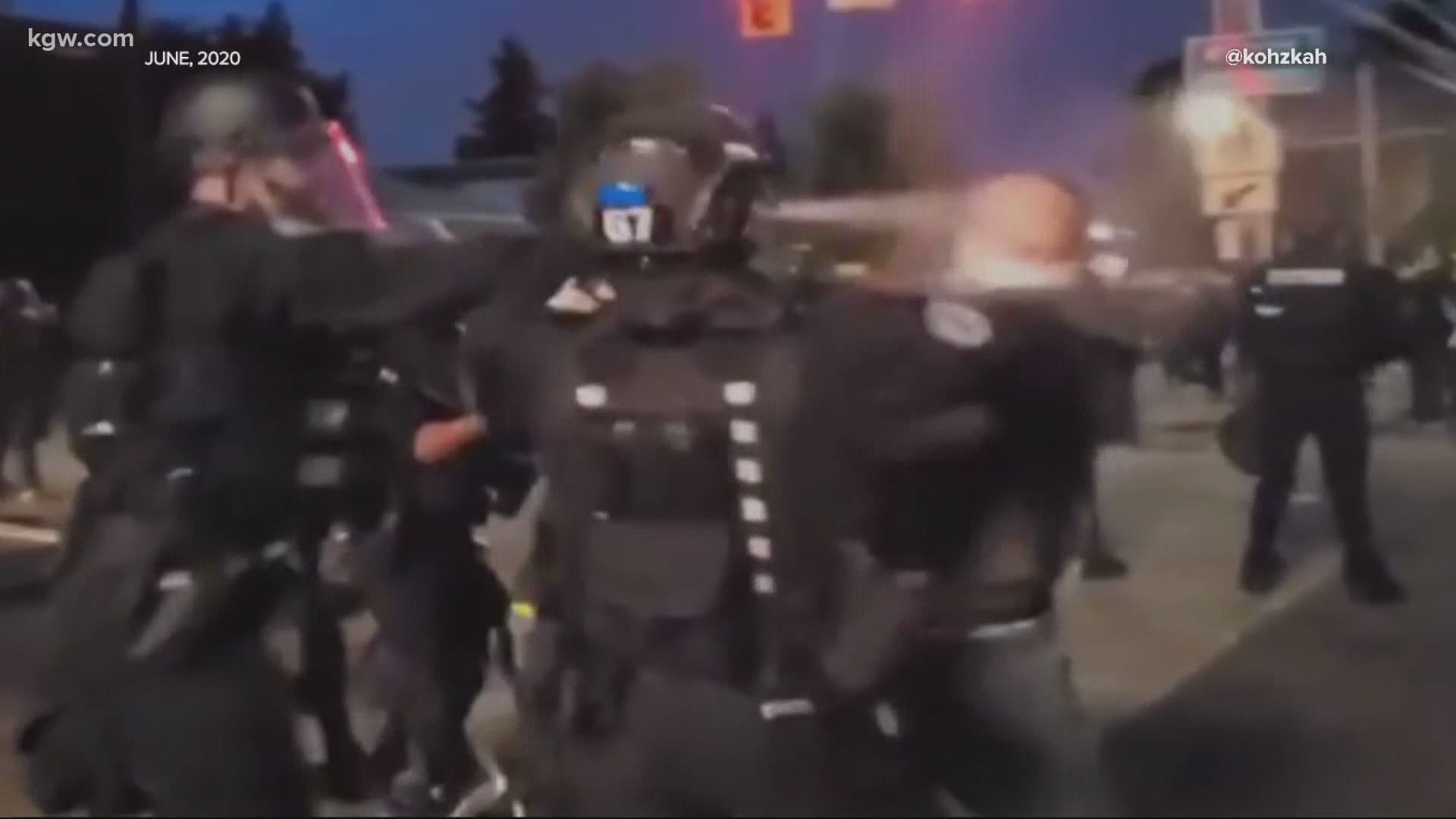PORTLAND, Ore — Amid historic protests against racism and police violence, the director of a city agency in charge of investigating claims of misconduct against Portland police officers said their staff received years’ worth of work in the span of three to four weeks.
He also said Portlanders should brace themselves to, potentially, never learn the results of many of those investigations.
"The vast majority of them cannot be made public," said Ross Caldwell, director of Independent Police Review (IPR) which is currently investigating more than 75 separate allegations against Portland police officers. "And that's one of the biggest problems that we have."
Caldwell made that point in an interview with KGW earlier this month, during which he gave an update on the agency’s investigation into a video captured in early June.
The clip, a view from KGW’s news helicopter, showed a Portland Police Bureau SUV accelerating into an intersection where close to half a dozen protesters could be seen moving barricades. The protesters had to quickly move out of the way.
The scene played out live on TV. The video of his has since been viewed more than 340,000 times on Twitter.
In his interview, Caldwell said IPR staff normally don’t give updates during ongoing investigations, but he understood the public interest in that clip.
"The first stage is always to identify the officer," Caldwell said. "And then with the protest events where you've got a lot of different law enforcement agencies downtown, we always want to make sure that we take the early step of making sure that it is a Portland Police Bureau officer."
He added that IPR had identified the officer driving. KGW reached out to the Portland Police Bureau to ask whether that officer is still working, including at ongoing protests. As of Wednesday evening, no one had responded.
Caldwell also said no one who was in the intersection that night has come forward.
They can still do that, Caldwell noted, because an investigation of this type normally takes months. It may take longer now because IPR is currently fielding thousands of calls, which have boiled down to more than 50 active investigations. Many of the calls that don’t turn into investigations, he noted, are either vague complaints about police in general or about officers employed outside the city’s jurisdiction, such as county or federal agencies.
"It really does take a lot of time," he said. "And there's a lot of really complicated rules you have to make sure that you've observed correctly or else you're not going to end up getting the result that you're hoping [for]."
Then there are the rules, Caldwell said, that frustrate him and his staff who work under the umbrella of the City Auditor’s office.
"[The public] should be able to see our investigations, something that's not currently possible due to a couple of state statutes and some amendments that would be needed to the [Portland] police union contract," Caldwell said.
The statutes allow findings of these investigations to be exempted from public records requests, except for under certain circumstances. One of those caveats include cases where "the public interest requires disclosure."
Caldwell said the problem lies in the vagueness of that phrase, which has been interpreted a number of ways by attorneys in judges.
Because of that, it’s not strong enough, he said, to stand up to a short, blunt section in the Portland Police Association contract.
Article 20 in that contract, which was just extended through June 2021, states: "If the City has reason to reprimand or discipline an officer, it shall be done in a manner that is least likely to embarrass the officer before other officers or the public."
That line Caldwell said results in most findings of IPR investigations and most disciplinary decisions ultimately made by the Chief of Police and the city’s mayor who serves as police commissioner, being kept confidential.
An exception exists in cases where officers are fired for cause. In those instances, their names and the facts surrounding their firing are entered into newly public state database while state officials weigh revoking their law enforcement certifications.
KGW Tuesday reached out to the Portland Police Association and Mayor Ted Wheeler’s office. Representatives for both declined to comment.
Caldwell said he hopes, amid a historic focus on police accountability, changes to those laws and contract stipulations that can do a lot to rebuild public trust.
"We're city employees. People should be able to see what our work looks like, and we shouldn't be asking people to take our word for it, that we're doing a good job," he said. "But it's something that we don't have any control over. So it's something that we really hope there's an opportunity to improve."


